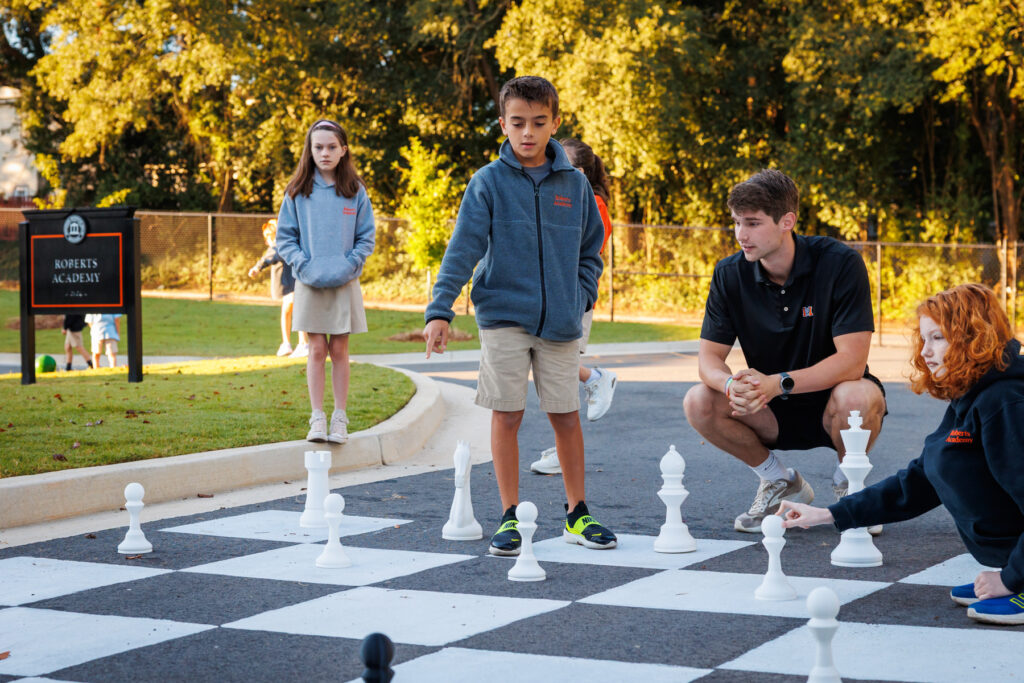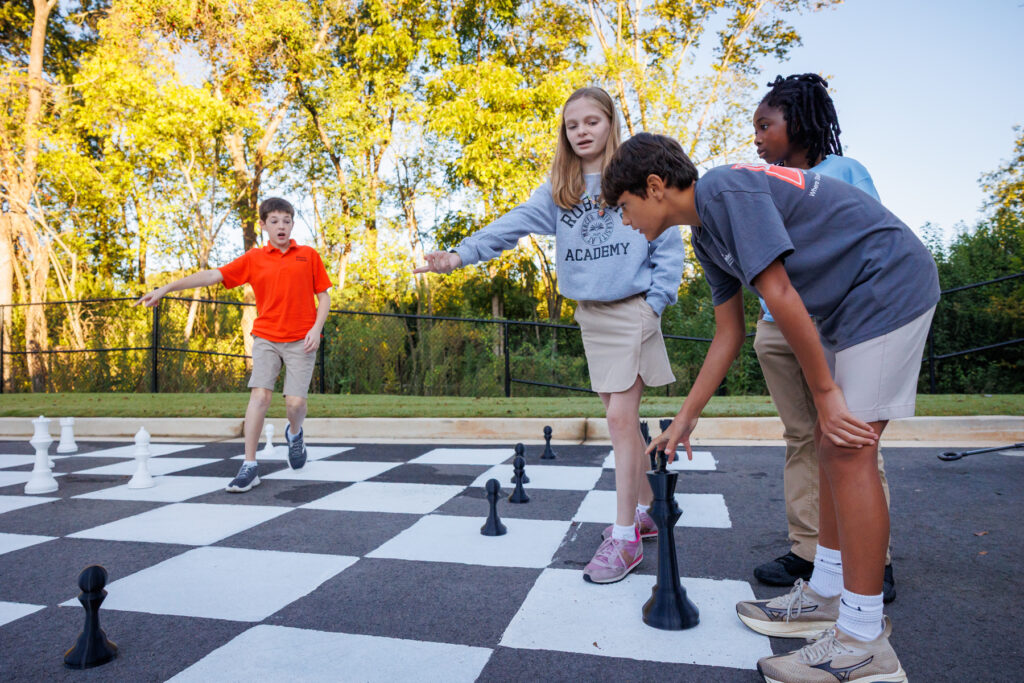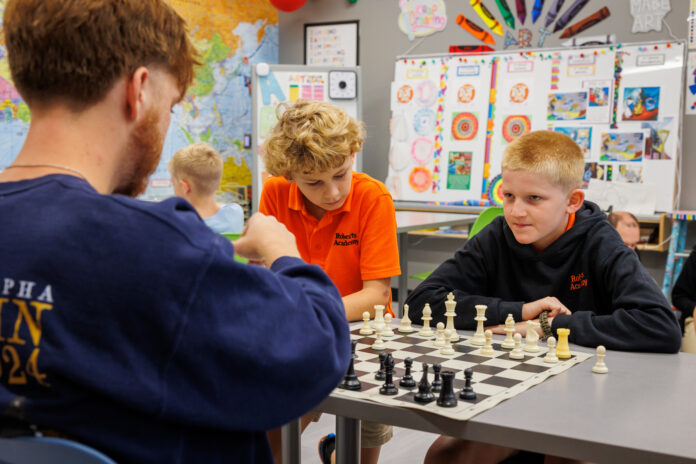
It’s 7:30 a.m. on a Wednesday, and Mercer University senior Marcus Mumber and his teammates have just arrived at Roberts Academy. It’s time for chess.
But this isn’t your typical team meeting. For the past year, Mumber and the chess team have led chess lessons for Roberts Academy students.
Established in July 2024 and made possible through a historic and transformational gift, Roberts Academy at Mercer University is Georgia’s only school for children with dyslexia outside of metro Atlanta. Serving 65 students in grades 2-6, the Academy uses the Orton-Gillingham Approach, a multi-sensory way of teaching especially designed for students with dyslexia.
Dyslexia and chess might seem like an unusual pairing but not to Mumber. He was diagnosed with the learning difference in elementary school and credits chess with his academic confidence and ultimate success as a pre-med student at Mercer.
Mumber’s father taught him to play chess when he was 16 years old, and he was quickly hooked, fascinated by the strategy and creativity it takes to win.
Soon, he wasn’t just beating his dad; he was outperforming peers who had been playing for years. Though school was often a struggle, chess became a space where he could excel.
“Growing up, I believed the narrative that school would always be a struggle for me because of my dyslexia,” Mumber said. “But once I started winning against some of the most intelligent people in my high school chess club, I realized something important: if I could outthink and outplay them on the chessboard, then I could also excel in the classroom.”
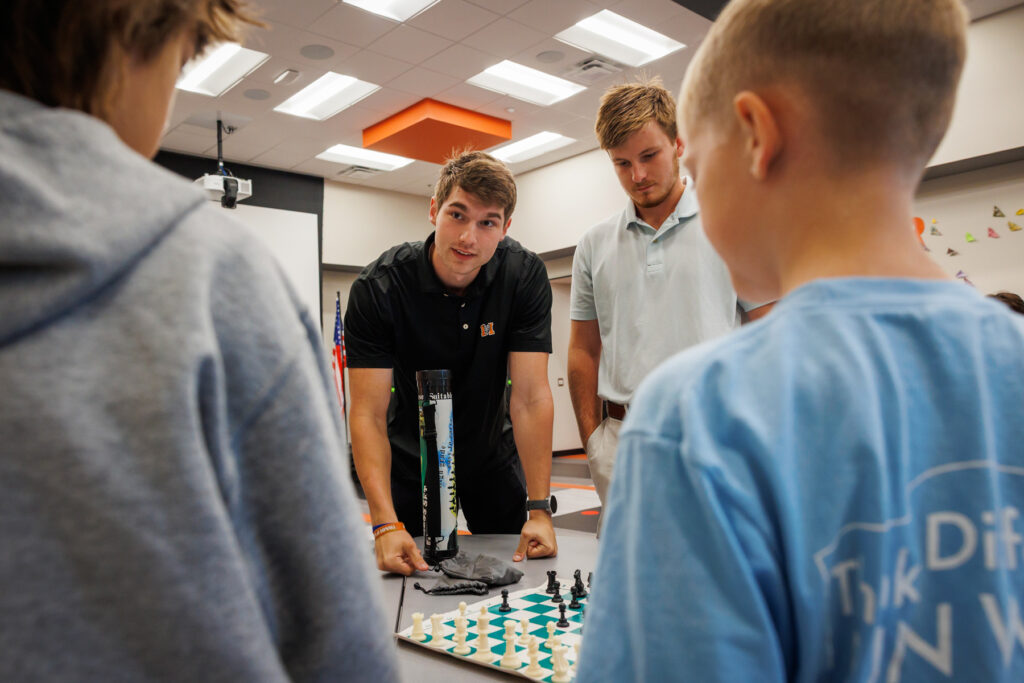
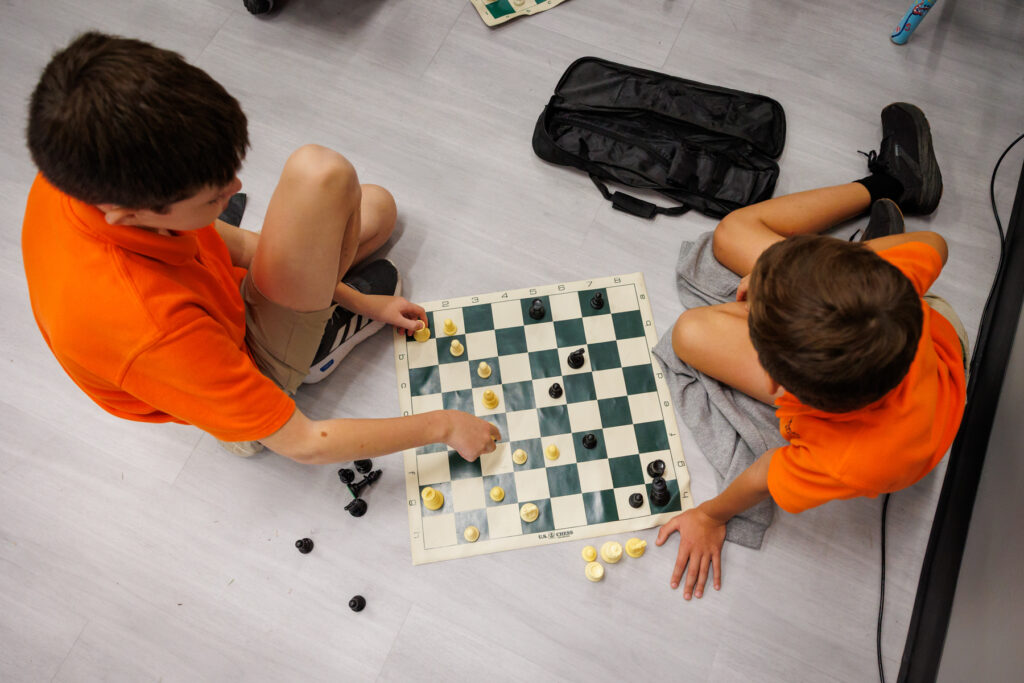
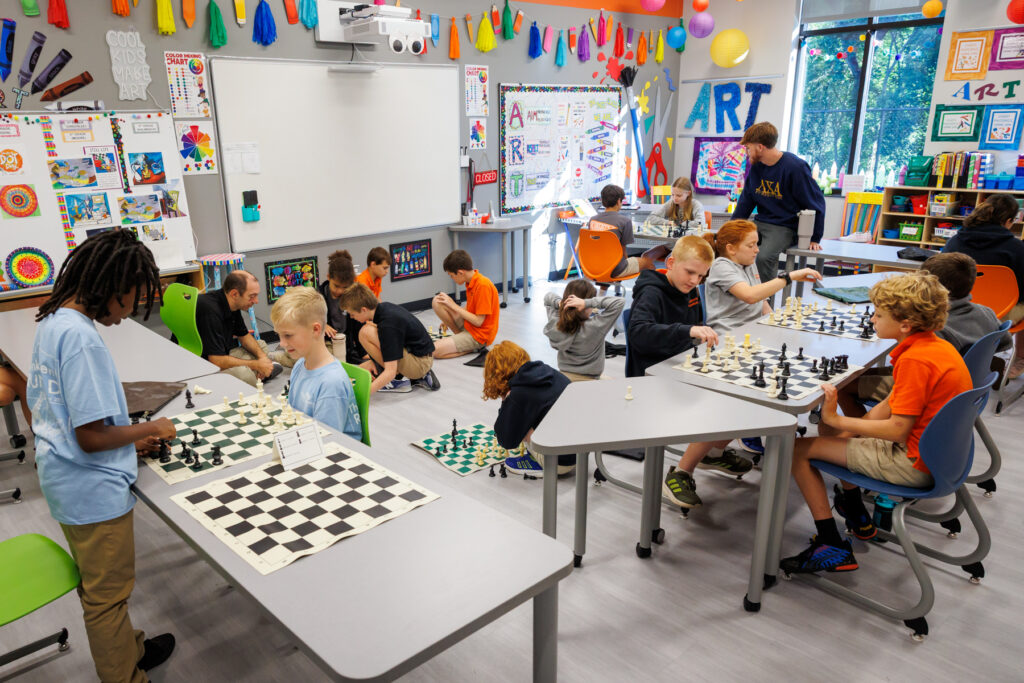
The game’s impact stayed with him. He learned about Roberts Academy as a junior biology major and immediately wanted to give back. After reading an article about the Academy in The Den, he emailed the school’s administrators to see how he could help.
“As someone with dyslexia, I know how isolating it can feel to struggle in school. I wanted to create a space where kids could feel empowered and valued for their unique strengths,” he said. “I reached out to Roberts Academy with my personal story of how chess changed my life, and they believed in me enough to lead an initiative to teach their students every week. I am genuinely excited to wake up at 7 on Wednesday mornings to teach them this year.”
Now, each Wednesday morning before school starts, 30-50 students meet in the Academy’s lunchroom to learn how to play chess. Mumber and his teammates teach students everything from the basics to more advanced strategies, but the benefits go beyond the game.
“At the beginning of last year, the partnership started out as an avenue to purely teach the students how to play chess,” said Dr. Jeff Pullen, associate professor of mathematics, co-chair of the mathematics and statistics department, and the chess team’s advisor. “However, as the year went on and we got to know the students better, it has also become about checking in and making sure they’re doing well in their studies and extracurricular activities. This year, Marcus has continued to prioritize making those personal connections.”
Dyslexia affects up to 20% of the population. While it presents challenges in reading, writing and language, it also fosters unique strengths and extraordinary talents.
Roberts Academy’s mission is to help students recognize and nurture these “dyslexia superpowers,” and the chess partnership is a perfect complement to that goal.
“Dyslexic students often excel at visual-spatial thinking and creative problem-solving, which are both key parts of chess,” Mumber said. “Chess is not about memorizing moves; it’s about visualizing the whole board and imagining the possible outcomes. That kind of strategic thinking directly mirrors the strengths that many dyslexic learners have. When I work with the students at Roberts Academy, I’m constantly amazed by the bold and imaginative solutions they come up with. When I present them with a challenging puzzle, they often find moves that completely surprise me.”
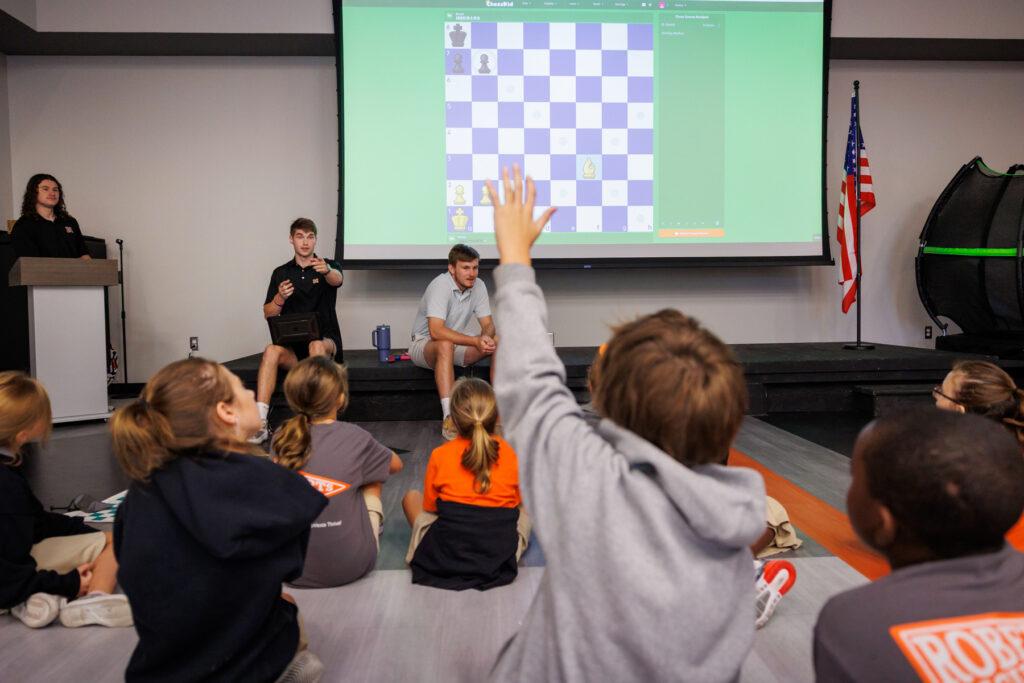
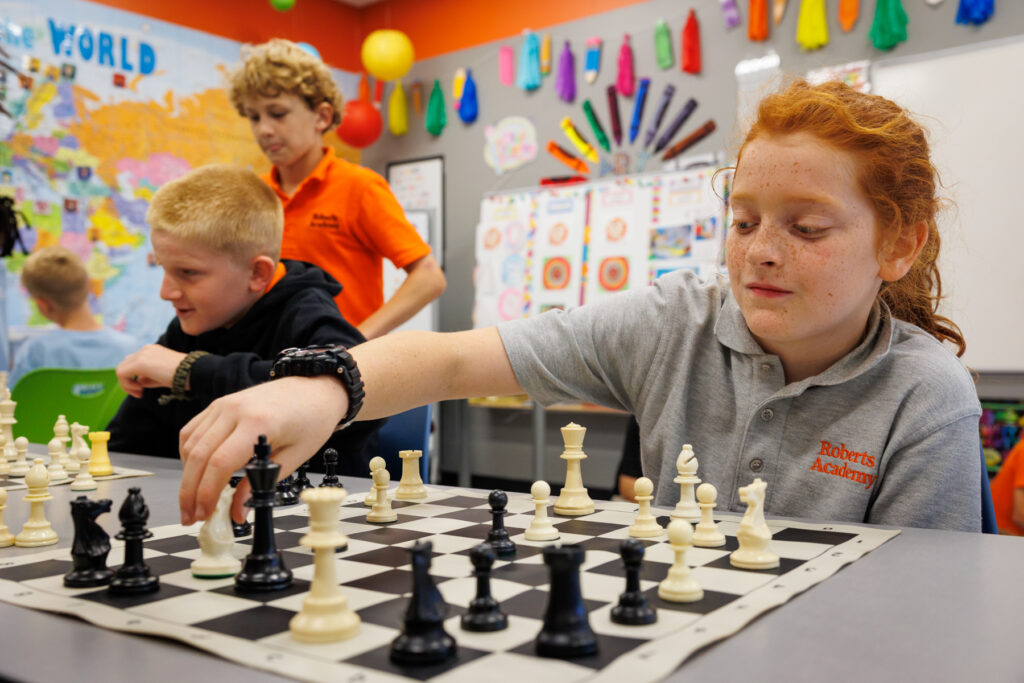
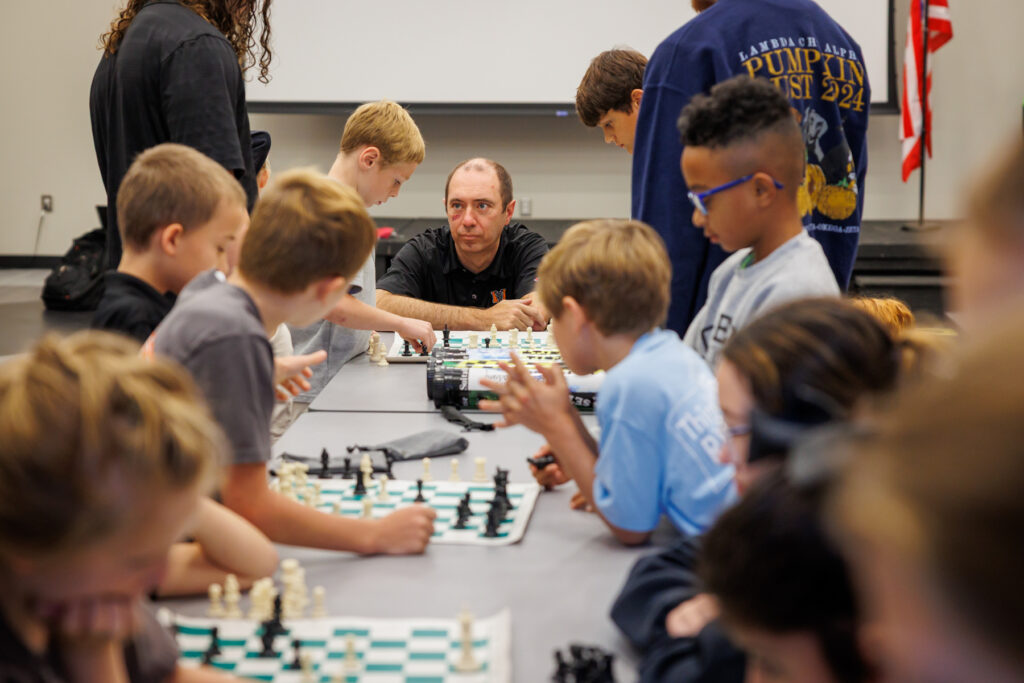
Joy Wood, the Academy’s head of school, said chess has been a game-changer for students.
“Marcus, Dr. Pullen and the entire Mercer chess team have been incredible mentors for our students,” she said. “Chess is especially well-suited for dyslexic thinkers, who often thrive at recognizing patterns and approaching problems from unique perspectives, both essential skills in the game. Yet the true power of this partnership goes beyond the chessboard. Our students are building relationships with a successful dyslexic adult and a team of encouraging role models, showing them that their differences are strengths.”
Blaine Mullis, a fourth grader, has learned to play the game after only three lessons.
“I like playing against people,” he said. “(The Mercer chess team) is really nice. They teach me how to move the pieces.”
Fifth grader Chloe Kirby said chess has helped her appreciate the art of problem-solving.
“There are tough problems to solve, and it feels good when I’m able to solve them,” she said. “It looks hard, but I can figure out ways to make it easy.”
Mumber said his ultimate goal is for students to gain confidence through learning to play chess. He had this message to share with them: “The world needs creative and innovative thinkers who see problems in a unique way. School may feel hard right now, but those challenges will shape you into someone resilient and innovative. Dyslexia is a gift, and you should never feel ashamed or less than anyone for being different.”
